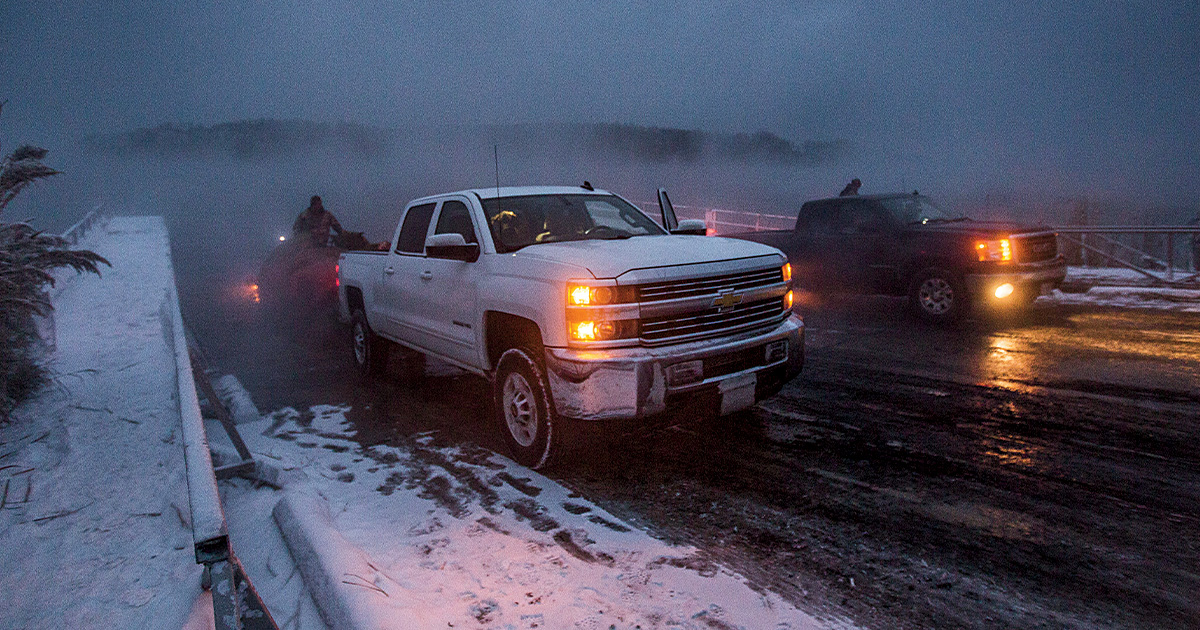Waterfowler’s Journal: Public Land Etiquette
When competition is high, a few simple rules can help everyone have a safe and enjoyable hunt
When competition is high, a few simple rules can help everyone have a safe and enjoyable hunt


At the boat ramp and in the marsh or field, show some consideration for your fellow waterfowlers.
I’ve had some great hunts at posh private duck clubs, but I’d trade almost any of those cushy hunts for one decent morning on the river here at home with my buddies. We hunt public water, and the hunting can be very good, even though it often isn’t. You see, I enjoy the challenge and the strategizing almost as much as the shooting, and there’s no better place for that than on a big public waterway.
As is the case with any popular public hunting area, we rarely get the place to ourselves. It’s enjoyed by a cast of characters who all love it for the same reasons we do. When there’s lots of competition, public-land duck hunting can bring out the worst in folks, but that seems to be the exception rather than the rule these days. This is likely due, at least in part, to the fact that bad behavior can be instantly immortalized on the internet. But I also think that most public-land waterfowlers have come to realize that competition is part of the package, and that hunting is safer and more fun when everybody gets along and respects one another. Adhering to the following rules makes that easy.
Setting up too close causes more conflict between waterfowlers on public land than anything else. Although some national wildlife refuges and wildlife management areas have designated hunting areas and access times, most are first-come, first-served. If you’re scouting and find a mother lode of ducks, assume that someone else has found them too. The hunters who reach the area first get the spot, and there should be no exceptions. So, if you arrive at your preferred spot and see headlamps shining, turn around and go to plan B. You have a plan B, right?
If ducks are circling your spread and someone in another blind calls at them or, even worse, shoots at them, you won’t be happy. Other hunters feel the same way. To be fair, when multiple groups have multiple decoy spreads out, it can be tough to say for sure which one the birds are working. That’s another good reason to keep your distance from other hunting parties. Many areas have a 200-yard minimum, but more distance doesn’t hurt. If you hear other hunters calling at birds that are obviously circling their spread, keep quiet until those hunters shoot or those birds move on.
You won’t make many friends by motoring into the marsh right at shooting light, flaring ducks as you search for a spot to set up. Get to your spot and be ready at least 15 minutes before legal light. If you’re running behind and know you’ll be late, wait until daylight breaks before heading out, take note of where others are hunting, and then set up somewhere else.
Most duck hunters will show some grace toward a retriever pup that’s not quite finished. But if your dog is an unruly monster that explodes from his stand to investigate every volley of gunfire that echoes from down the way, he’s infringing on everyone else’s hunt and creating a safety hazard too. Your dog is your responsibility. If you can’t control him, keep him on a leash.
The boat ramp is a gathering place at most public areas. In the predawn, everyone is in a hurry to get on the water and set up in time for the first flight. Do your part to keep the assembly line moving. Most boat launches used by waterfowlers are small, and that calls for some coordination. Load your gear and prep your boat before you get to the ramp. Once you’re on the ramp, don’t stay there any longer than it takes to launch your boat.
Most of the hunting rules on public land are unspoken because they’re based on common sense. Treat other hunters the way you’d want to be treated yourself, and chances are everyone will have a great time.
Ducks Unlimited uses cookies to enhance your browsing experience, optimize site functionality, analyze traffic, and deliver personalized advertising through third parties. By continuing to use this site, you agree to our use of cookies. View Privacy Policy